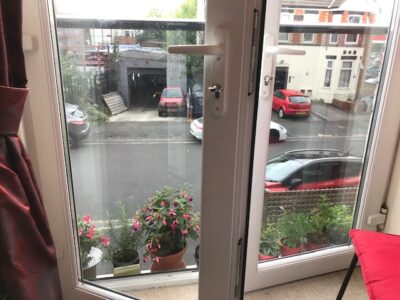REPOST: Anthony Lau on reading for the Bruntwood Prize
During this public health emergency, the safety and wellbeing of our staff, artists, audiences and families comes first. We have been exploring ways in which…
The Bruntwood Prize closed to entries on June 6th. We were delighted to receive 1890 scripts. Since that date out large cohort of around 150 expert readers have been working on reading every script. There is an extensive five stage process to this reading before creating the shortlist. You can read a bit more on the reading process here: How do I enter? – The Bruntwood Prize for Playwriting (writeaplay.co.uk)
In today’s blog- phase one reader Wyllie Longmore talks about his experience and perspective.
This is my second stint as a Phase One reader. My memory of my first experience is a bit dim now with regard to the content of the scripts read, but I remember the feeling of being locked into a ‘zone’; that for the days while I was reading nothing else mattered. Having got to the end of my 30 scripts on that first occasion, I offered to read 20 more. Of course, the more one reads, the more marking becomes a problem. You have to have your wits about you: does this really deserve an ‘A’; were you being a wimp by giving that a ‘B’; and you’re going to ruin somebody’s life by giving that a ‘C’?
I was looking forward to reading scripts again this year. Especially as we have just come through a period where theatre was practically brought to its knees by the pandemic and consequent lockdown. How had playwrights fared in this time? Had experienced playwrights been inspired to write the masterpiece they always knew they could? Had the experience of lockdown either on their own or being forced back into family living persuaded people to write about that experience and had the writing taken the form of a play? And would the result be great pieces of writing coming out of the lockdown now theatres were gradually finding their feet again?
For many of us the lockdown was no fun. I’m full of admiration for those actors who turned living spaces, cupboards and box rooms into mini recording studios so they could continue to work. For theatres who began to face the challenges of producing work online. We all knew this wasn’t theatre: some of it was too inert, too dead without the audience reaction to be really theatre. We need the performer and the audience to be in the same space. But at least some of us were working. For myself, I did convert my study into an ‘igloo’, with a whole host of paraphernalia that was sent to me with which to record a programme for Radio 4 and I’ve vowed never to do that again. And that play reading I did on zoom, with us four actors in different parts of the country, was an experience, but that wasn’t theatre either, was it?

So, welcome the end of the lockdown with theatres limping back into life: some falling back on the tried and true to persuade audiences, who so quickly had lost the habit, back through the doors; others, having shed all their staff not having anything much to offer; and yet others, bursting with new life and endeavour after the privations of the lockdown, now eager to reclaim the live work with fresh ideas and a deal of experimentation. So, I was looking forward to reading scripts for the Bruntwood Prize.
My excitement about reading the scripts and my anticipation that I might find something new and challenging that would set the theatre alight after the lockdown, was replaced by a sense of ill-preparedness. Was I the person to read these scripts, as the training had asked? In the end I was relying a lot on instinct and experience to see me through. Of each script I asked the following: Does this make me want to keep reading? If so, is it because I can’t wait to know what happens next, or is because I have a vision of how it might illuminate the stage when performed. Or – there could be a number of other reasons, but I will know when a script feels right and when it does not.
Looking back now on the thirty scripts I’ve just finished reading there was much to admire in the quality of much of the writing and an appreciation of the wide range of concerns that were being addressed. I rejoiced to find scripts set in Africa, New Zealand, Hong Kong and Canada, with dialogue in Igbo, Cantonese and Mandarin and the languages of the indigenous peoples of Canada and New Zealand – scripts that would require authentic casting if they were to be produced. There were scripts in which women are the protagonists: in which writers are grappling with issues of parenting and adoption, relationships in and out of marriage, the minefield of dating and online shopping, the dilemma of stay-at-home mother vs career, of grieving for the loss of a loved one. There was ritual; there was even a film noir for the stage.
Wyllie Longmore
Comments
Add comment